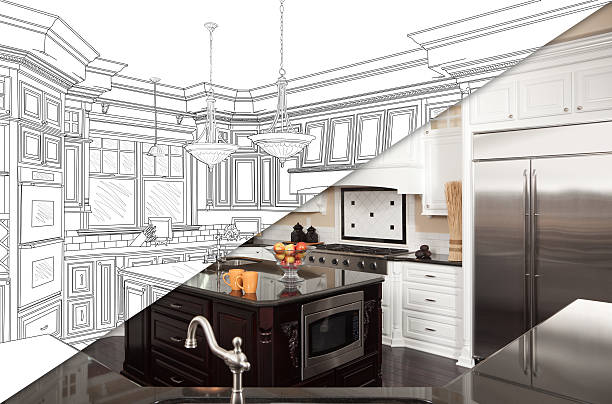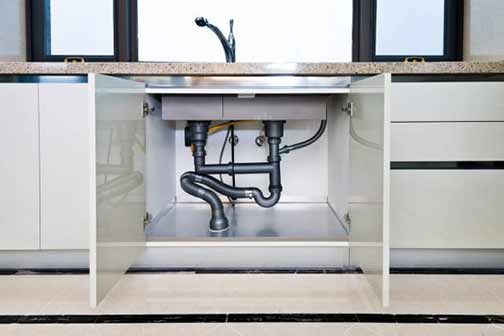
When planning a kitchen remodel for your home, few things are as un-sexy as the plumbing. Typically, you are interested in more aesthetically pleasing aspects of the project, like cabinet upgrades, marble countertops, kitchen island, appliance upgrades, and new flooring.
Yet, the plumbing sits at the center of everything that makes your kitchen usable and attractive. Without functional, adequate, and up-to-date plumbing, every upgrade you perform in your kitchen will be less effective and useless in some cases, says TCT Management team.
So before you dip into your piggy bank to start splashing money on those dream kitchen updates, take a moment to think about what you are going to do about the plumbing. You don’t want to carry over the familiar plumbing issues in your current kitchen into the new one.
When doing a kitchen remodel, kitchen plumbing upgrades are essential for several reasons.
- They improve the efficiency and overall functionality of your kitchen
- They enhance the ambiance of your kitchen and home
- They limit the risk of future plumbing issues with their attendant costs
- They help to reduce energy costs by cutting water wastage
- They boost the attractiveness of your home and its market value
What steps should you take when renovating your kitchen to ensure no mismatch between the old plumbing and your revamped kitchen?
Assess the current plumbing in your kitchen
More than anybody else, you know the challenges you have had to deal with in your kitchen’s existing plumbing system. It is easy to assume that those problems are normal and fail to fix them when renovating the kitchen.
That is why you have to be intentional about creating a list of issues in the plumbing. Ask yourself, what are the things you hate most about the design of your kitchen’s plumbing, and what are the most common plumbing issues in the kitchen?
Anticipate your future kitchen plumbing needs
Take into account future changes in your family. Are you expecting your family to grow? Do you expect the plumbing to experience more abuse as your children get older? How do you plan to use the kitchen: meal preparation only or as a space for receiving guests?
Talk to an experienced kitchen plumber to get an idea of where the trends are headed. Renovating your plumbing with those ideas in mind will help make it future-proof. If you plan to sell the home, consider what potential buyers would like.

Think of your water needs
Your new kitchen layout may have different water needs than the old one. The position, number, and types of fixtures, appliances, or sinks will be different. That will impact how you route water lines and drains and the quantity of these features that will be needed.
Upgrade old and outdated features
The best time to replace the outdated or worn-out plumbing in your kitchen is when you are renovating the kitchen. This project will likely involve demolition, allowing you to swap out the old water and drainpipes in your kitchen walls and floors.
Do not forget the electrical cables
Any major upgrade in your kitchen layout will include reviewing the current electrical design. Your new lighting, appliances, and some plumbing fixtures will need electricity. Ensure the electrical design is up to par with the needs of your new kitchen.
Critical plumbing upgrades to consider for your kitchen renovation
Faucets
New modern faucets add to the allure of your kitchen. But they must also be functional in many ways. You may need to increase the number of faucets. Low-flow touchless faucets help you save water while adding a layer of convenience.
A larger sink
There are different ways to increase the size of your kitchen sink. You could opt for a double sink. Adding a sink with a deeper bowl is another way. In an ideal world, you would go with both options: double sinks with very deep bowls.
Additional water lines
You need more water lines if you plan to add appliances now or in the future. Even if you don’t think you will need more appliances later, it is always a good idea to have some redundancy in the number of water lines in your kitchen.
Water filtration/softener
Unless the water in your area is safe to drink, there are no water hardness issues or risk of natural disasters, you need water softening. Moreover, it is cheaper to install these in your kitchen than to keep spending money on bottled water.
Finally, make sure to work with an experienced kitchen plumber when designing the plumbing for a about-to-be renovated kitchen. This is not a task you want to undertake.
Working with a competent kitchen plumber will help you avoid conflicts between the plumbing design and the kitchen layout.
More importantly, a licensed and experienced local plumber will ensure that your new kitchen and its updated plumbing system comply with current codes and regulations.

